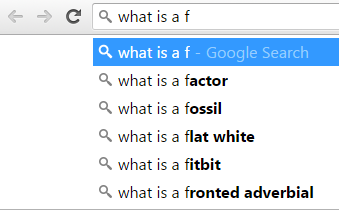Key Stage 2 SATs commence this week and this year’s tests have already proved so controversial that many parents have decided to boycott the them altogether by keeping their children off school.
The main source of controversy is government intervention that has resulted in much harder Key Stage 2 SATs tests. The government says that making the national curriculum more difficult will deliver better educated children, whilst its opponents (teaching unions included) point out that you can’t make children more intelligent simply by giving them harder work to do.
A further point of debate is the content of the tests, including the many grammatical features children taking Key Stage 2 SATs tests are now expected to identify and name. These include subordinating connectives, modal verbs and the past progressive tense. MP for Brighton Pavilion, Caroline Lucas embarrassed David Cameron in the commons last week by asking him to define a few of these terms, which he declined to do, explaining that:
“The whole point of these changes is to make sure our children are better educated than we are.”
So there you have it. Our Eton-and-Oxford educated Prime Minister wants every child sitting Key Stage 2 SATs tests to achieve a greater vocabulary of grammatical terms than himself.
Now, I’m not proposing to criticise the Prime Minister for his lack of ability to explain subordinating conjunctives. Indeed, I don’t mind admitting that I’d never heard of some of the terms children taking Keys Stage 2 SATs tests are now expected to name and identify. Fronted adverbials, for example. If forced to have a stab at it, I’d guess that these are adverbs at the start of a sentence. But surely, I reasoned, that’s not a useful term for a ten or eleven year old child? With an intimidating name like that, fronted adverbials must be something altogether more complex. So I did what any sensible person would do. I asked my nine year old child.
Me: What’s a fronted adverbial? Is it adverbs at the start of a sentence?
9 Year Old Child: Yeah.
So there you have it. A fronted adverbial is a word or words at the start of the sentence that describe what comes next. Here are some examples (the fronted adverbials are in bold):
In the morning, she awoke with a headache.
Slowly and carefully, she climbed out of bed.
Without a thought, she dressed and prepared for the day ahead.
It can’t be easy being the parent of a child taking Key Stage 2 SATs this week. In my opinion, whether you’ve decided to keep your child away or send them into school, it’s a difficult decision and I’m certainly glad that I don’t have to make it for a couple of years. Don’t panic, though, if your child doesn’t know what an embedded clause is because a quick glance at my special teachers’ crystal ball reveals that in a few short years, it will be decided that much of this terminology is an unhelpful barrier to learning and understanding and the grammar project will be abandoned and/ or altered significantly. Undoubtedly and inevitably, fronted adverbials will not feature for long in the National Curriculum.
If you do need to know your modals from your metaphors (for helping with homework, preparing for Prime Ministers Questions, bored on a Saturday night …), however, there is a good glossary of terms on the School Run website.


